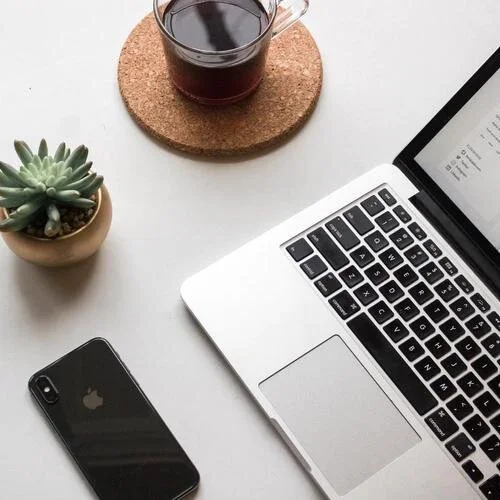Sign our petition!
Where do you get your nutrition advice from?
It’s quite likely that by now unless you’ve been hiding under a rock you’ve been subjected to “celebrities” and “social media influencers” promoting “diet products” on social media.
With every season of Celebrity love island there’s a new wave of “bikini clad honeys” profiting from lucrative ad campaigns they have just signed that has just purchased their brand new car ... But for you it’s just the start of your descent into added body insecurity and low self esteem, because you’ve just been “sold” an image of false hopes and promises to wake up soon and look exactly like them - you won’t, it’s a con and costly one at that ... not just to your purse but to your mental and physical health. Oh and the fact they have zero qualifications or expertise in the area of health or nutrition seems to not matter to them or these unscrupulous companies who are exploiting you and your insecurities …
Reality TV stars such as Kim Kardashian have promoted “diet products” on social media. Kim promoted Flat Tummies appetite suppressant lollipops that have been advertised to help tackle cravings and keep you fuller for longer¹. This isn’t the first time this has been brought to your attention. Dr Giles Yeo has headed up a documentary on the latest diet crazes and social media influences². A second documentary explores how celebrity influencers on social media can mislead their followers³. But, in spite of this nothing seems to change and popularity rather than credibility seem to be the determining factor to where people get their information from.
The toxic wellness industry literally profits from capitalising on people’s insecurity and pushing the message that you’re not quite good enough but these quick fix diet products are the answer to your prayers. They’re not, they're dangerous and need to be stopped …
In a recent interview Hala El Shafie, dietitian and founder of Nutrition Rocks, discusses how being exposed to the idealised lifestyle and body image on social media could lead to the over obsession of healthy eating. With this regard, she also mentioned the rising number of cases of Orthorexia Nervosa, defined as a pathological fixation of an obsession for healthy eating⁴. Currently, Orthorexia Nervosa is not recognised as an eating disorder however the classification of this disorder is under debate⁵.
Hala El-Shafie adds: “The impact of these types of posts is having a severely detrimental effect on the health of our nation, which is causing irreversible harm and even death.”
A project conducted in the UK involving adolescents found that 53% of young people reported using social media to access health information on food, exercise and body image⁶. As there is not any regulation for what social media influencers post on social media, anyone without a health professional title can provide nutritional information or promote products – and be paid for that. This unregulated content has led to a negative impact on young people's health and wellbeing⁶ - this should not be happening!
Leading dietitians Hala El Shafie and Sophie Medlin, with the support from the British Dietetic Association (BDA), have created a petition to protect the public from false and potentially harmful medical claims made by “celebrities” and “social media influencers”.
There are “celebrities” endorsing these dangerous “diet” products, e.g. appetite suppressants and IV drips - the list keeps on growing! Products such as this have been linked with an increased risk of severe consequences (e.g. valvular heart disease⁷). Social media is also linked to an increase in body dissatisfaction⁸ - check out our article on body image and social media for more information!
Sophie Medlin, dietitian and founder of City Dietitians says: “IV Drips - if you’re well enough to walk in and ask for one, you shouldn’t be given one.” Sophie discusses how IV drips are commonly given to the public in shopping centres and hairdressers to “cure hangovers” or for “aesthetic purposes”. Sophie adds: “The National Institute for Clinical Excellence (NICE) set out very clear guidelines on IV therapy. They clearly state that the IV route should ONLY be used if there are no other options and following a thorough assessment including blood tests.” NICE have set out an extensive set of guidelines regarding IV drips which can be found here! Sophie adds how social media influencers can “glamourise” IV drips without mentioning the associated risks (e.g. infection from the needle, phlebitis/ blood clot and extravasation/ the needle missing the vein). Long story short: this practice is dangerous!
UK Research has found that 63% of young people believe that health information found on social media is a good source⁶, with 46% of young people changing their health-related behaviours due to the content on social media⁶. A year later in 2019, a UK survey found that 22% of adults and 40% of teenagers expressed concern over their body image as a result of social media⁸.
Worryingly Dietitians have noticed a marked increase in cases of eating disorders due to the rise of social media and diet products⁹. In the UK, approximately 1.25 million people have an eating disorder¹⁰.
Hala El-Shafie says: “However, a new regulatory system would aim to remove the risk of such posts and protect the general public from harmful messaging, whilst also educating the young and vulnerable on what and who to trust when using social media for medical information.”
Do you want to help end “celebrities” and “social media influencers” posting about “diet products?” Please sign our petition now!
Resources:
Freederm: Teen body image and self-esteem: A practical guide for parents
References:
https://www.womenshealthmag.com/weight-loss/a20717884/kim-kardashian-flat-tummy-lollipops/
https://www.mentalhealth.org.uk/publications/body-image-report/exec-summary
https://nutrition-rocks.co.uk/nutrition-blog/2020/6/15/new-campaign-petition
https://www.beateatingdisorders.org.uk/how-many-people-eating-disorder-uk







